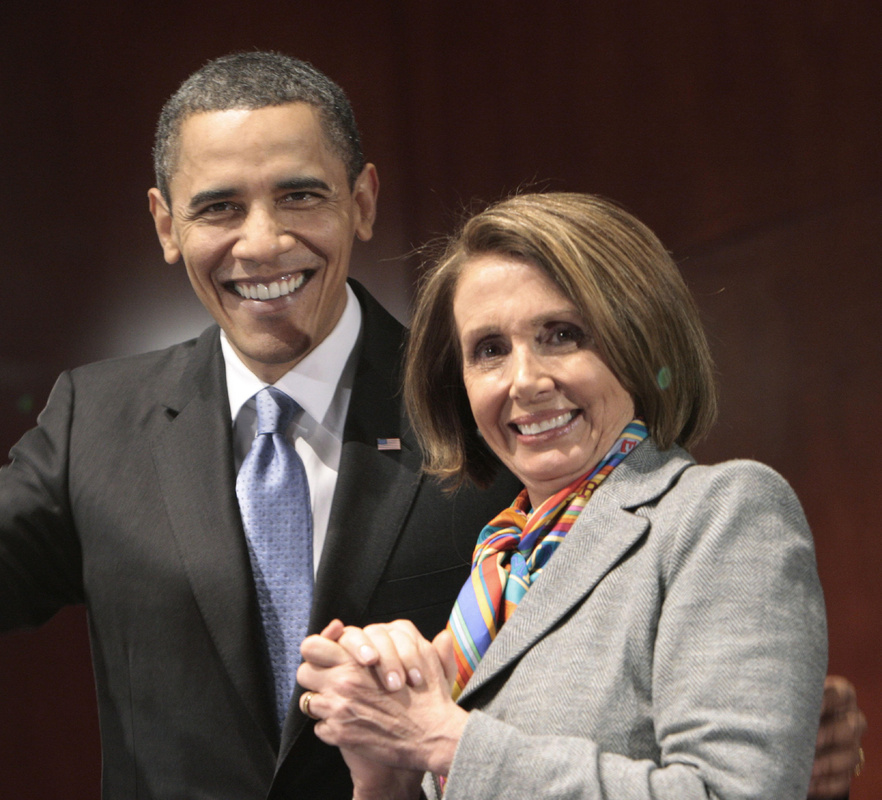WASHINGTON – As the final round of the battle over health care reform begins today, President Obama and the Democrats are in reach of a historic legislative achievement that has eluded presidents dating back a century. The question is at what cost.
By almost any measure, enactment of comprehensive health-care legislation would rank as one of the most significant pieces of social welfare legislation in the country’s history, a goal set as far back as the presidency of Theodore Roosevelt and pursued since by many other presidents. But unlike Social Security or Medicare, Obama’s health-care bill would pass over the Republican Party’s unanimous opposition.
The lengthy and rancorous debate has inflicted considerable damage on the president and his party. It helped spark the grass-roots “tea party” movement and generated angry town hall meetings last summer that led to some opponents painting Obama as a socialist and a communist for advocating a greater government role in the health care industry.
The issue now is whether final passage of the legislation will cause more harm or begin a turnaround in the Democrats’ fortunes heading toward the November midterm elections.
This is not how the struggle over health care was supposed to unfold.
When the president decided last year to push for comprehensive reform, there appeared to be the best opportunity in a generation to ensure that nearly all Americans have access to health insurance. There also seemed to be a consensus among business, labor and health-industry groups that government help was needed to rein in the escalating costs of health care.
A year later, Obama and Democratic congressional leaders are struggling to find the final votes in the House to push the bill through, against united Republican opposition and a country sharply polarized over whether and how health-care coverage should be extended to virtually all Americans. Liberals say the bill should have created a government alternative to private insurance, while conservatives decry an increase in taxes and expensive new government programs.
The political stakes are enormous. Obama’s approval ratings are below 50 percent in several recent polls, and more people disapprove of his handling of health care than approve. His presidency will be stamped by the outcome of the debate.
Democrats are afraid of failure and nervous about what success could bring. They fear substantial losses in November, with their majorities in the House and Senate possibly at risk if the country turns even more negative toward the administration and its policies. Republicans vow to continue challenging the program at the state and national levels.
Regardless of the political fallout, historians say health-care reform will take its place in the same category as the enactment of Social Security in 1935 and Medicare in 1965, and only a rung or two below passage of the major civil rights bills of the 1950s and 1960s.
In addition to the bill’s providing coverage for more than 32 million uninsured Americans, people would no longer be denied coverage because of pre-existing conditions. The “doughnut hole” for Medicare prescriptions would eventually be eliminated and young people could stay on their parents’ insurance plan through age 26.
“I think this will be seen as a really major reform initiative,” said presidential historian Robert Dallek. “How it plays out remains to be seen. But if Social Security and Medicare and civil rights are any preludes to this initiative, then I think it will become a fixed part of the national political/social/economic culture.”
But there is a major difference between this health-care battle and the debates that preceded passage of Social Security and Medicare. Although there was opposition to those measures, in the end they passed with overwhelming, bipartisan majorities:
• The House approved the Medicare bill on a vote of 313-115, including 65 Republicans – nearly half the GOP caucus at the time. The Senate approved the measure by 68-21, including 13 of the 27 Republicans.
• Social Security passed the House in 1935 by 372-77. On that vote, 77 Republicans joined the majority and 18 Republicans opposed it. In the Senate, the vote was 77-6, with five of 19 Republicans in opposition.
Send questions/comments to the editors.



Success. Please wait for the page to reload. If the page does not reload within 5 seconds, please refresh the page.
Enter your email and password to access comments.
Hi, to comment on stories you must . This profile is in addition to your subscription and website login.
Already have a commenting profile? .
Invalid username/password.
Please check your email to confirm and complete your registration.
Only subscribers are eligible to post comments. Please subscribe or login first for digital access. Here’s why.
Use the form below to reset your password. When you've submitted your account email, we will send an email with a reset code.